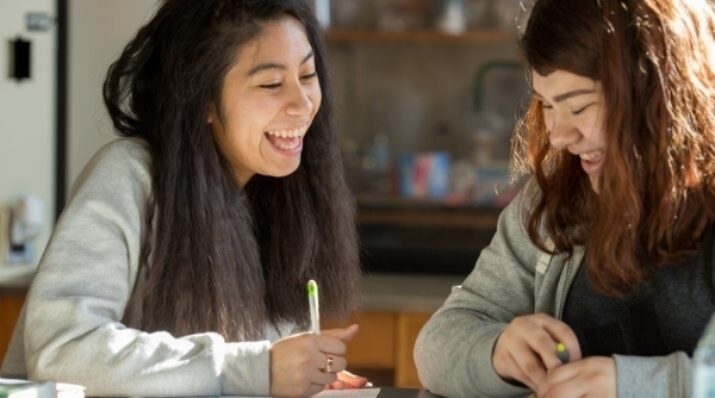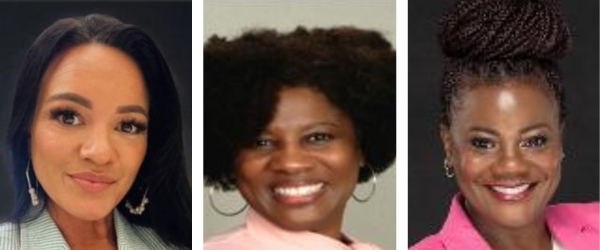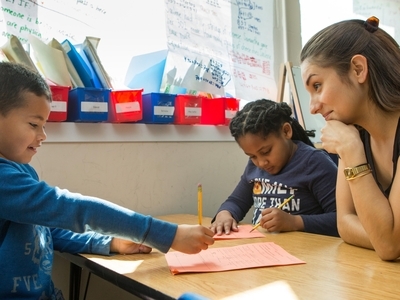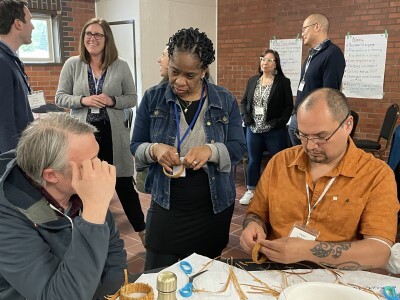Building Humanity into Student Success Policies and Systems
Topics

Next generation learning is all about everyone in the system—from students through teachers to policymakers—taking charge of their own learning, development, and work. That doesn’t happen by forcing change through mandates and compliance. It happens by creating the environment and the equity of opportunity for everyone in the system to do their best possible work.
Success after high school isn’t only about college readiness, it must include viable employment pathways, financial stability, and sustained access to the supports students need to not just live but thrive.
When we talk about student success, it’s easy to focus on the data, whether it’s graduation rates, test scores, college acceptance percentages, etc. But that’s only half the story. Behind every statistic is a young person navigating systems that were not always built for them. True compassion in education policy means listening deeply to those stories and having the courage to go beyond what’s written in statute and what we see in data. Sometimes, the right solution doesn’t exist yet in law, and that’s where leadership at every level comes in.
Seeing the Human Story Behind the Data
When we put a name and face to the data, decision-making changes. If we think about our own children, grandchildren, nieces, nephews, siblings, or cousins, it becomes clear: every policy choice impacts real people’s lives. That human aspect must guide how we design systems and supports.
In our collective work with high school students, particularly those from underrepresented or underserved communities, we’ve seen some consistent gaps:
Limited transitional pathways. Many students are bright, capable, and motivated, yet the traditional routes from high school to college or trade school may not be the right fit at the time of graduation. We need more formal pipelines to living-wage employers, so students have immediate, meaningful work opportunities that set them up for long-term success.
Disconnected supports. In high school, some students receive vital academic, mental health, or behavioral supports only to have them disappear after graduation. While students with disabilities often have formal transition plans, others with significant needs, such as food insecurity, unstable housing, or mental health struggles, are often left without a safety net.
These failures are not just about missing programs; they’re about missed opportunities to prepare students to advocate for themselves and navigate the systems that will shape their adult lives. It’s also about building humanity into our policies and systems, especially when it comes to wraparound supports.
Wraparound Services and Transition Support
The concept of wraparound services, specifically continuous, holistic support, shouldn’t start at graduation. It should begin in early childhood and extend through every stage of a student’s journey. High-quality instruction is essential, but so are family literacy programs, multilingual support, mental health services, and community partnerships that strengthen student wellbeing from pre-kindergarten through postsecondary transitions. While policy can and should support these systems, educators and leaders don’t have to wait for legislation to act.
Ultimately, success after high school cannot be defined solely by college enrollment. It must include viable employment pathways, financial stability, and sustained access to the supports students need to not just live but thrive. A strong educational system not only prepares students academically but also equips them to navigate life with networks, skills, and confidence intact.
Additionally, transitions are critical turning points in a young person’s life. By rethinking pathways, ensuring supports are sustained, and centering policies and practices in compassion and humanity, we can transform these moments from points of vulnerability into springboards for opportunity. Because in the end, student wellbeing is not just about where they end up on paper; it’s about whether they are equipped and empowered to succeed in the real world.
Listen: Adding Humanity to Student Success Policies
NGLC is grateful for our collaboration and partnership with EDU Café Podcast that brings fresh voices and insights to the blog. Listen to the full episode of the podcast that inspired this article:
Learn More
- Bridging People and Policy in K-12 Education - Policies should be designed to remove barriers, not create them, so that every student has a genuine chance to succeed.
- Policy Gives Us Structure. Compassion Gives Us Purpose. - When well-being comes first, attendance improves, engagement grows, and the outcomes that policy aims to achieve naturally follow.
- Preparing the Next Generation of Educators - When teacher preparation programs help educators develop these four skills to sustain their impact, they demonstrate that great teaching is about more than lesson plans and test scores.

The authors: Dr. Katie Colina, Dr. Dominique Smith, and Sarika Simpson
Photo at top by Allison Shelley/The Verbatim Agency for EDUimages CC BY-NC 4.0




